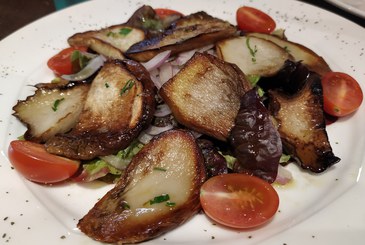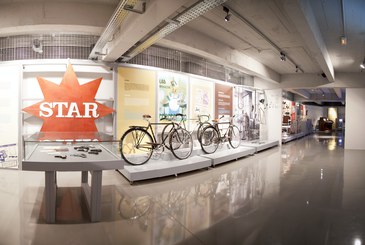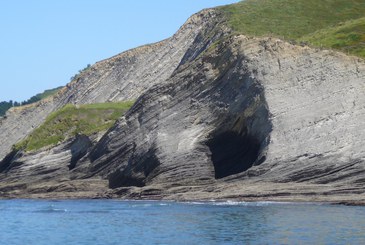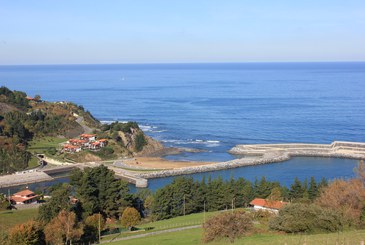
Basque, our language
If you visit Debabarrena you will surely see that most signs are written in two languages. You may also notice that you hear another language spoken, in addition to Spanish. It is euskera, our language, and one of the oldest in Europe. To find out more, click here.
In Debabarrena, approximately 60% of the population speaks Basque, so you have a good chance of meeting one or more euskaldun (a word to designate people who speak Basque). Here are some useful words and expressions for your visit.
Useful Basque words and expressions
When you arrive, we will greet you with an “ongi etorri” (welcome). We may also address you with a “kaixo” (hello). Or depending on the time of day, we will say "egun on" (good morning), "arratsalde on" (good afternoon), or "gabon" (good evening).
Other expressions that you will use a lot during your visit are “mesedez” (please) and “eskerrik asko” or “mila esker” (thank you), very useful when going to a bar or restaurant, as well as when you arrive at your accommodation or when you are about to go on a guided tour. To answer simple questions you have "bai" (yes), or "ez" (no). When you go shopping, or ask for the bill at a restaurant, you can say "zenbat da?" (how much is it?). In addition, we show you how the numbers are said in Basque so that you can indicate precisely what you want:
- Bat - One
- Bi - Two
- Hiru - Three
- Lau - Four
- Bost - Five
- Sei - Six
- Zazpi - Seven
- Zortzi - Eight
- Bederatzi - Nine
- Hamar - Ten
- Hogei - Twenty
- Hogeita hamar - Thirty
- Berrogei - Forty
- Berrogeita hamar - Fifty
- Ehun – One hundred
When you enjoy the best of Debabarrena's gastronomy, you will “jan” (eat), and “edan” (drink), in a “jatetxea” (restaurant), in a “taberna” (bar) where you can have a “pintxo” (small portion of food, usually on bread), or even in a “sagardotegia" (cider house) for “txotx”(expression that announces the opening of the tap in the cider barrel).
In Basque, we start the day with “gosaria” (breakfast). Mid-morning we may have a "hamaiketakoa" (elevenses). We call lunch “bazkaria”, and at night we take “afaria” (dinner). If we go out for a drink, either at noon or in the afternoon, we call it “txikiteo” or “poteo” (the act of going out for drinks). On these occasions we drink “ardoa” (wine), “zuria”, “gorria” or “beltza” (white, rosé, red), “sagardoa” (cider), “garagardoa” (beer), “txakolina” (white wine from the Basque coast). Or if you prefer, you can ask for "ura" (water). At mealtimes, “ogia” (bread) is always present on our table. We usually start with a first course of "barazkiak" (vegetables), followed by "haragia" (meat) or "arraina" (fish). As a mid -morning or mid-afternoon snack we may have a piece of "gazta" (cheese). Before you start eating, don't forget to say "on egin!" (enjoy your meal!).
If, in addition to our gastronomy, you have come to Debabarrena to enjoy our landscapes, we believe it may help you to know that “mendia” is a mountain, that “erreka” and “ibaia” are two words to say river, and that “ibilbidea” means path or trail. In our mountains you will find “zuhaitza” (tree), “basoa” (forest), “baserria” (farmhouse), and even a “baseliza” (hermitage, literally church in the forest). And if you prefer to take a walk through our towns, you will undoubtedly find the “udaletxea” (town hall), and the “eliza” (church) in the main squares of all of them. If you prefer cycling, in our region we have two “bidegorria” (bike lanes).
Finally, when your visit comes to an end, you can say “agur” (goodbye), but we prefer that you say “gero arte” (see you later), or “laster arte” (see you soon), because we know that when you visit Debabarrena, you will want to come back.




